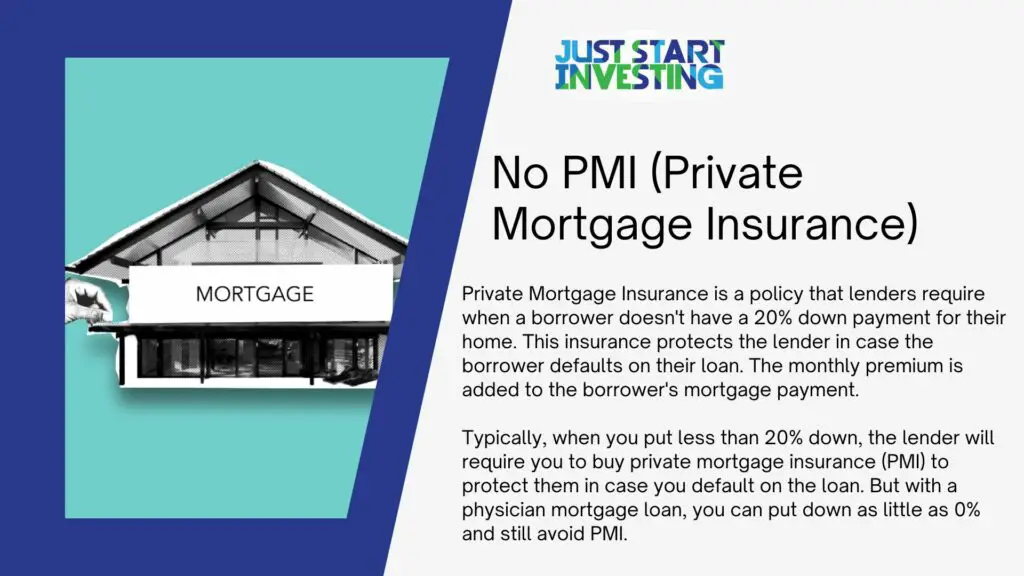You’re a recent medical graduate and probably got a lot on your plate. You’ve just finished your studies and are ready to work as a physician. And like others, you may have financial requirements. Maybe you want to buy a house but don’t have much in terms of savings or income history. And while you’ve been able to pay off some of your student loans, there are a majority left over.
If this sounds like you, then you’re not alone—and there’s help for you. Physician mortgages were designed to meet the financial needs of recent graduate medical professionals with limited income history and savings. Keep reading to learn the various benefits of getting a mortgage loan as a doctor.
No PMI (Private Mortgage Insurance)

Private Mortgage Insurance is a policy that lenders require when a borrower doesn’t have a 20% down payment for their home. This insurance protects the lender in case the borrower defaults on their loan. The monthly premium is added to the borrower’s mortgage payment.
Typically, when you put less than 20% down, the lender will require you to buy private mortgage insurance (PMI) to protect them in case you default on the loan. But with a physician mortgage loan, you can put down as little as 0% and still avoid PMI.
Lower Interest Rates
Interest rates on physician mortgage loans are typically lower than standard mortgage rates. This is because these loans are seen as low-risk by lenders. And since you’re starting your career, you may not have the income to qualify for a conventional mortgage. Physician mortgage loans are also affordable. Even if you don’t have a lot of income right now, you may still be able to qualify for a good interest rate on this type of loan. In some instances, physician mortgage loans might also be lower than jumbo loan rates.
Option to Buy a Larger House
With a physician mortgage loan, you can qualify for a larger loan amount than you would with a conventional mortgage. That’s because these loans don’t require PMI and often have lower interest rates. As a result, you could end up with more purchasing power and may be able to buy the home you want.

No Prepayment Penalty
When you take out a conventional mortgage, you’ll often have to pay the penalty if you want to pay off the loan early. This is because your lender wants to ensure that it will get paid back throughout the loan. With a physician mortgage, however, there are no prepayment penalties. That means you won’t have to pay the penalty if you want to pay off your loan early. This can be beneficial if you’re planning on moving or want to use the money for something else. It will also help you save money on interest over the life of your loan.
Don’t Need Perfect Credit
To qualify for a conventional mortgage, you need a high credit score—usually 740 or higher. But with a physician mortgage loan, you may be able to qualify with a lower score. That’s because these loans are for medical professionals who are just starting out in their careers and may not have established credit yet. If you don’t have perfect credit, you may still be able to get a physician mortgage loan.
Can Use Multiple Types of Income
When applying for a conventional mortgage, the lender will only consider your primary source of income. But with a physician mortgage loan, you can use multiple streams of income to qualify. This includes income from a side hustle, rental property, or investment portfolio.
Final Word
Physician mortgage loans offer several benefits that can help you buy a home. If you’re a doctor just starting your career, this type of loan could be a good option.

Just Start Investing is a personal finance website that makes investing easy. Learn the simple strategies to start investing today, as well as ways to optimize your credit cards, banking, and budget. Just Start Investing has been featured on Business Insider, Forbes, and US News & World Report, among other major publications for its easy-to-follow writing.

